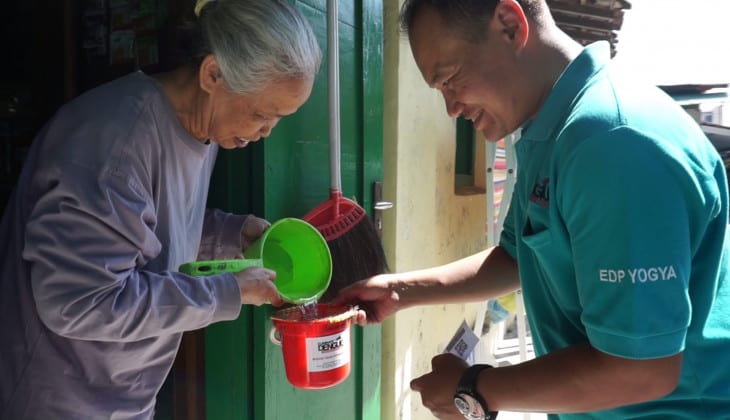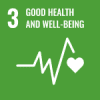
Dengue fever is still a problem in Indonesia. Currently, control methods of the disease caused by Aedes aegypti mosquito are continuously being developed. One of them is carried out by Yogyakarta World Mosquito Program (WMP) research team which used Wolbachia bacteria. In the past two years, the team had placed Aedes aegypti eggs with Wolbachia bacteria in seven sub-districts of Tegalrejo and Wirobrajan in Yogyakarta City. It showed that mosquitoes with Wolbachia have reduced 74 percent of dengue fever cases in the region.
“But currently we’re still in the process of getting the final result,” said Prof Adi Utarini, main researcher of WMP Yogyakarta, when announcing a report of the technology implementation study of Aedes aegypti carrying Wolbachia for dengue fever control in Yogyakarta on Monday (17/6) at UGM.
Adi Utarini confirmed Wolbachia has the potential to control dengue fever in Yogyakarta. She explained that the study would continue to three or four locations outside Yogyakarta. “Currently, we’re still monitoring Wolbachia in the research areas,” she said.
Reportedly, Yogyakarta Health Agency announced an increase in cases. Until the end of May there were 335 cases or a jump from the same period last year which was 51. “But there are no unwanted fatalities in this matter,” she said.
WMP Yogyakarta, formerly known as Eliminate Dengue Project-EDP Yogya, is a research done by Tropical Medicine Centre of the Faculty of Medicine, Public Health, and Nursing UGM with the support of funding coming from Yayasan Tahija in collaboration with WMP Global. At this stage, WMP Yogyakarta had placed 8,000 buckets containing Aedes aegypti eggs with Wolbachia in research areas until the end of 2017.
Besides, impact study had been done by compiling data from patients with fever at 18 health community centers in Yogyakarta. Furthermore, data on patients who were willing to be involved in the research were collected. Their blood samples were also taken for further examination at WMP Yogyakarta laboratory.


